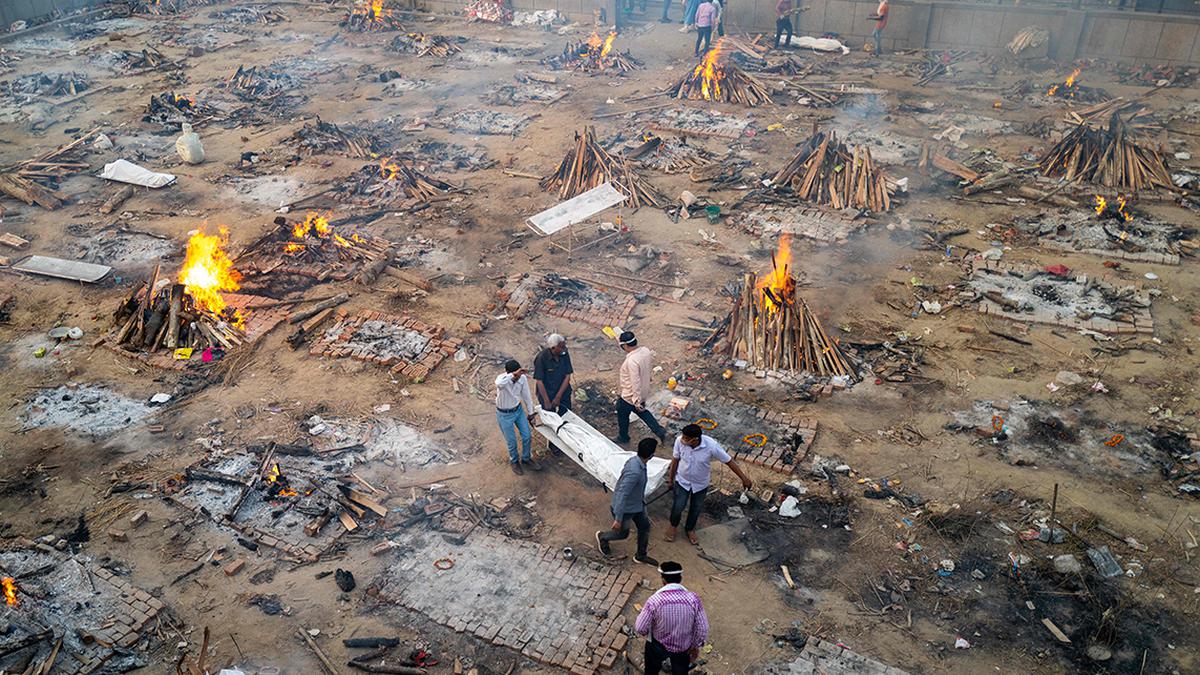
COVID-19 and the state: policy interventions during the pandemic Premium
The Hindu
Rajasthan's Gig Workers Act provides hope for unorganised workers, who had no job security or social security, and were pushed to the brink during COVID-19. Harsh Mander and Jayati Ghosh's books argue that the suffering was not caused by the virus alone, but by public policy choices that treated the lives of millions of the working poor as dispensable. Jyoti Mukul's book analyses the government's directives and records the voices of those impacted. It's imperative to learn lessons of solidarity, equality and justice to build back better.
The Gig Workers Act passed by the Rajasthan Assembly on Monday was the culmination of a campaign which centred around the demand for social security for unorganised workers. A Welfare Board has been proposed, comprising all stakeholders, and also a welfare fund, guaranteeing social security to platform-based gig workers. For thousands in the unorganised sector with no job security and few other guarantees, this will bring some solace for the future. Due to this lack of social security, many were pushed to the brink during COVID-19 and its aftermath.
How will the rampage of COVID-19 be remembered? Over six million people have died globally due to the virus, but the actual toll could be much higher. SARS-CoV-2 was first noticed in the Wuhan province of China in November 2019. By March 2020, the World Health Organization had declared it a pandemic, and it swept across the world, leading to waves of death and destruction.
The virus hit India hard too. Officially, 5,00,000 deaths were recorded in the two waves that hit the country, in 2020 and 2021, but as economists, analysts, researchers and activists on the ground have pointed out, there has been underreporting of cases and deaths.
In his latest book, Burning Pyres, Mass Graves and a State That Failed its People (Speaking Tiger), Harsh Mander looks back at the first and second waves of the pandemic and argues that the suffering unleashed in the humanitarian crisis was not “caused” by the coronavirus alone. Instead, he says it was the inexorable consequence of public policy choices which treated the lives of millions of the working poor as dispensable.
Economist Jayati Ghosh raises a similar point. In The Making of a Catastrophe: The State in the Time of COVID-19 (Aleph), Ms. Ghosh says that beyond the direct health and mortality impacts, the economic and social devastation experienced in India was a catastrophe, adding that this cannot be attributed only to the disease. Much of the damage resulted from government action and inaction, she points out.
While agreeing that several countries suffered worse fates, Ms. Ghosh says the damage to living and working conditions in India resulted principally from the way the government first attempted to control the disease with a “brutal lockdown”, and then did not do enough to ensure basic protection for the poor. Since a majority of the workforce is in the informal sector, with no legal or social protection, a stringent policy had devastating consequences.
In the book, she mentions a survey of 3,176 households across five States (Assam, Bihar, Uttar Pradesh, Telangana and Delhi) which found that school education was badly hit, with children affected in multiple ways. While 52% of the children reported having a TV at home, only 11% said they had watched educational broadcasts; even when there were phones at home, only 30% children had access to it, and in this too boys were preferred over girls. Another survey based on teachers and parents found out that online schooling was not providing any real learning opportunities, given the constraints. The disruption in education, more often than not, led to a rise in child labour.













